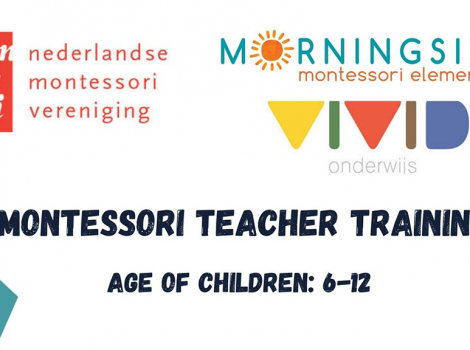

Common misconceptions about the Montessori method
School work should be completed during school hours
Children spend on average 6 hours at school, during which they are exposed to educational material in various ways. Ideally, the curriculum is covered during these hours, within the classroom setting. Theoretically at least, curricula should be designed to be covered by the teacher(s) within the designated school-hours. This seems to be far from truth. In most elementary settings, a part (a large part on many occasions) of what any given curriculum in supposed to cover is expected to be dealt with at home. According to the Montessori method, this is, to say the least, unacceptable. Students need to accomplish their learning objectives within the classroom setting while at school (which is a Montessori environment includes the outdoors - but that’s the topic of yet another post) so to be able to explore and learn from the world outside school as well after school hours.
What’s more, research shows that homework for elementary school children can be counterproductive.
There is no scientific evidence that homework has any positive effects on learning
Many parents (who were themselves the recipients of massive amounts of homework during their school years) seem to think – mistakenly, to the detriment of their children – that homework is an essential part of learning, since it enhances and promotes deeper understanding. This opinion is, at best, unfounded. Beyond the possible benefits for those who mandate the curricula (who are rarely the teachers themselves) there is no research pointing to the benefits of homework for elementary students. (In fact, there isn’t even a positive correlation between homework and achievement!) So homework during the elementary years, if we want to be scientific about it, is at best pointless. It is also potentially damaging.
Homework increases stress levels for young children and their parents
Many parents (who were themselves the recipients of massive amounts of homework during their school years) seem to think – mistakenly, to the detriment of their children – that homework is an essential part of learning, since it enhances and promotes deeper understanding. This opinion is, at best, unfounded. Beyond the possible benefits for those who mandate the curricula (who are rarely the teachers themselves) there is no research pointing to the benefits of homework for elementary students. (In fact, there isn’t even a positive correlation between homework and achievement!) So homework during the elementary years, if we want to be scientific about it, is at best pointless. It is also potentially damaging.
Children need rest after school
What does have a positive effect on children is rest time. Which is minimized because of homework. A child’s mind is similar (surprise, surprise!) to an adults in its need for pause. Think of yourselves after work. Yes, many of us end up working endless hours, well into the night but we, as informed adults, are well-aware of the detrimental results this has on our long-term productivity and health. The amount of time left for the child’s mind to refresh itself, to produce original thoughts, to bond with the family and friends, to get to love and create within the home environment is minimized because of homework.
Instead of homework
Parents use the argument that via homework they stay connected with their children’s learning. Given the serious disadvantages of homework, this is a weak argument. There are various other ways to stay connected to your child’s learning and life in general, one of them being spending time with them while they are at home and entering creative dialogue and play with them in order find out what they are learning, how and how they feel about it. In the authentic Montessori elementary environment, where zero homework is a well-respected rule, ‘practical life at home’ is given to families in order to encourage parents to get involved in their children’s lives at home. Setting the table together, gardening, reading and re-telling a story, exploring the seasons, etc. etc. are all examples of ways parents can actually stay involved in their children’s lives, in a way that actually makes a difference to the children themselves.
REFERENCES:
https://www.washingtonpost.com/news/answer-sheet/wp/2012/11/26/homework-an-unnecessary-evil-surprising-findings-from-new-research/https://parenting.blogs.nytimes.com/2015/09/10/when-homework-stresses-parents-as-well-as-students/
Others articles

Montessori teacher training program
Are you passionate about education and looking for a career that allows you to make a positive impact on young minds?

Summer School 2023
Our program is tailored to meet the individual needs and interests of each child, providing a personalized learning experience that fosters creativity, independence, and a love of learning.

Common misconceptions about the Montessori method
School work should be completed during school hours
Children spend on average 6 hours at school, during which they are exposed to educational material in various ways. Ideally, the curriculum is covered during these hours, within the classroom setting.
